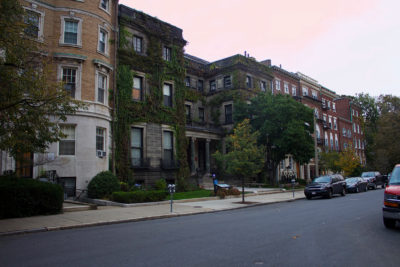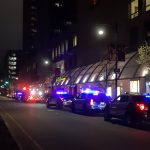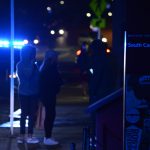
Two Frederick S. Pardee School of Global Studies professors, Jayita Sarkar and Rosella Cappella Zielinski, are introducing a new course titled “Nuclear Governance” for the spring 2018 semester.
Sarkar, who will co-teach the class with Zielinski, said the course will examine how states manage both their nuclear weapons and nuclear energy programs, with a specific focus on multilateral governance structures.
“We would like to focus on the dual-use character of this technology,” Sarkar said. “There are a lot of gray areas where [nuclear] proliferation risks can emerge.”
The course will focus on history, current affairs, policy relevance and will also include a simulation component, Sarkar said.
Sarkar said that she and Zielinski received a grant from the Stanton Foundation — an organization that issues grants for universities to develop new undergraduate courses on nuclear issues — to develop the course.
“There is already substantive interest at BU among the undergrads on nuclear issues because professor Zielinski taught a course on nuclear security,” she said. “So, we were able to convincingly argue that students care about these issues and that there was interest.”
Sarkar added that because the course is funded by the Stanton Foundation, they have a budget to bring in guest lecturers from outside of Boston University. She said the course might feature a lecturer from the United States Air Force, who would speak about managing the U.S. Nuclear Arsenal, as well as lecturers discussing China and Israel.
Adil Najam, dean of Pardee, said the new Nuclear Governance course exemplifies the school’s commitment to relevant interdisciplinary studies.
“Our world is not always organized around disciplines,” Najam said. “It is organized around real issues and real problems. So, bringing our academic disciplines together to address that is what we think courses like [Nuclear Governance] help address.”
Najam said that the current global political climate surrounding nuclear weapons — and the policies that will come from the weapons — along with technology motivated the development of the new course.
Sarkar said that the course will tie into current events through a series of simulations, one of which will be a weeklong study of North Korea centering around the possibility of war.
“We have not formulated the exact simulation situation because the climate [in North Korea] is so much in flux,” Sarkar said. “We’ll be discussing the history of it, the current issues, and have a simulation with the students.”
Najam said he is very confident that students will be excited to take this new course.
“It tackles the big questions, it brings disciplines together, it prepares [students] for careers,” he said. “I think the recipe for successful courses is that it’s not simply the popularity, it’s the usefulness.”
Several students studying political science in the College of Arts and Sciences expressed interest in the new course.
Sophomore Connor Cox said the course seems like a timely examination of current events.
“It sounds really interesting in terms of just a great way to learn about things that are relevant to the way the world operates today,” he said.
Miguel Fernandez, a first-year PhD student, said the course seems interesting because of how big of an issue the nuclear threat is in international and domestic diplomatic discussions.
“Getting to learn more about how the nuclear threat can shape domestic policy [and] how politicians can use it to acknowledge their goals can be a great thing to study,” he said.
Anima Anwar, a CAS senior, said she had heard about the new course and is interested in taking it.
“I think the course is interesting and relevant and something new at BU,” she said.
Shaun was the Editor-in-Chief for the Spring 2019 semester. Before that, he was the Multimedia Editor, the Layout Editor and a News writer. He also sat on the Board of Directors. Follow him on Twitter @shaun_robs.














